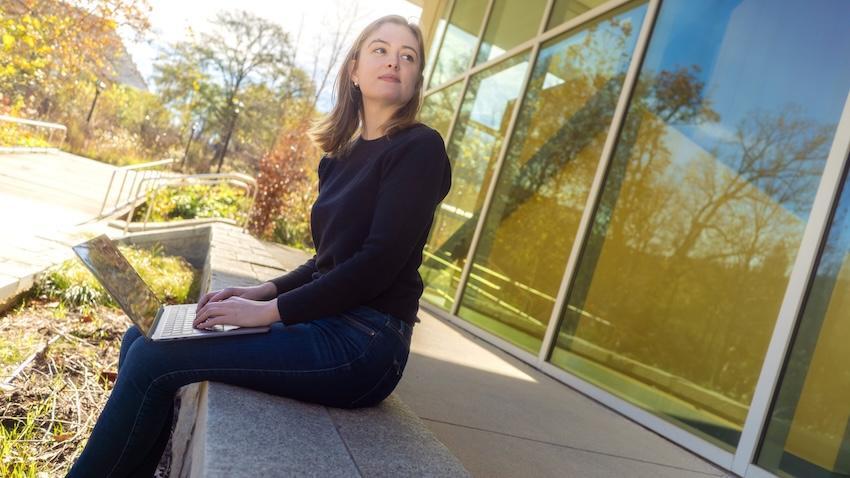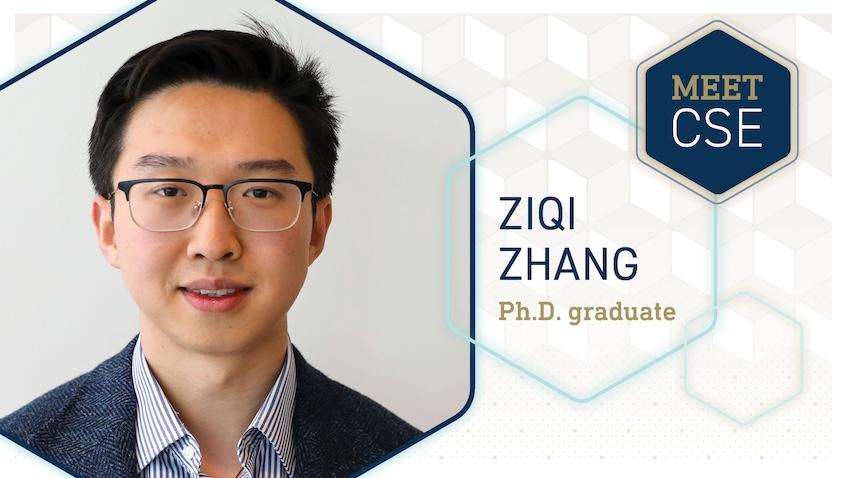
Sarkar Brings Passion for Parallel Computing and Shakespeare to Dean's Suite
Vivek Sarkar, the newly named John P. Imlay, Jr., Dean of Computing at Georgia Tech, thinks a lot about how to solve problems.
His research focus is parallel computing. The technique splits one hard-to-solve large problem into multiple problems that are easier to solve simultaneously — in parallel — on multiple hardware processors. Often, parallel computing involves integrating different kinds of systems to solve different pieces of the whole.

Sarkar says that it's not unlike being a dean. You have to look for bottlenecks, see what's holding back the team from achieving its full potential, and bring different ways of thinking together to achieve a single goal.
"Parallel processing and 'together we swarm' are essentially the same idea," Sarkar said.
He has worked on programming languages, compilers, runtime systems, and debugging and verification processes for high-performance computers. He is a fellow of the Association for Computing Machinery (ACM) and the Institute of Electrical and Electronics Engineers (IEEE), a former member of the IBM Academy of Technology, and a recipient of the ACM-IEEE CS Ken Kennedy Award.
Sarkar has paired his research career with an equally impressive record of leadership. Before coming to Georgia Tech, he served as chair of the Department of Computer Science at Rice University and as senior manager at IBM Research. He has served on the Board of the Computing Research Association (CRA) and was a founding co-chair of the CRA-Industry Committee. He is a member of the US Department of Energy's Advanced Scientific Computing Advisory Committee (ASCAC) and the ACM Council.
Most recently, he has served as chair of the School of Computer Science and held the Stephen Fleming Chair for Telecommunications at Georgia Tech.
"Vivek combines the two characteristics required for leadership in the academy," said John Hennessy. "He is a distinguished and accomplished researcher and has a range of leadership experiences at IBM Research, at Rice, and at Georgia Tech." Hennessy, a former president of Stanford and current chair of the Board of Directors at Alphabet, was Sarkar's Ph.D. advisor.
Sarkar says he's always been deeply committed to both halves of his work.
"Early in my career, I started on a path that combines management as well as research, which many people think is contradictory," he said. "But if you care for the community you're part of, and they need a leader, you put yourself forward as a candidate in the spirit of volunteer leadership."
A Man of Many Interests
Sarkar grew up in India with a father who worked in human resources and loved math and logic puzzles, which he shared with his son. His mother worked in advertising and introduced young Vivek to Shakespeare. In high school, he loved science, math, and books and plays.
"I got into theater, debate, Shakespeare, 19th-century literature," he said. He applied to electrical engineering and English literature programs when he reached college age. Even while studying at the Indian Institute of Technology-Kanpur, he did a lot of theater, playing roles in plays by Shakespeare, Chekhov, Moliere, Ionesco, Albee, and more.
Later, at Rice University, he played minor roles in several student theater productions, which he loved. Rice assigns its undergraduates to residential "colleges" who live together. Sarkar enjoyed dining in the colleges and getting to know his students outside the classroom.
"I want to find ways to get our amazing Computing faculty more engaged with student clubs and the undergraduate experience here at Georgia Tech," he said.
Building a Career
After college, Sarkar spent a year earning a Master of Science in Computer Science degree at the University of Madison-Wisconsin.
"Madison is an awesome town," Sarkar said. "Among other things, I even learned to sail there." He also met Kishore Ramachandran, whom he eventually joined as a colleague in Georgia Tech's School of Computer Science.
"He was the one who kept telling me for years to consider Georgia Tech," Sarkar said.
Then, he went on to do his Ph.D. at Stanford University. His advisor, John Hennessy, a pioneer in compilers and computer architecture, encouraged Sarkar to enter academia.
"I wanted to go to industry first," Sarkar said. "I wanted to gain experience outside of academia and then come back with something to teach."
He joined IBM during one of its most turbulent periods and got a lot of leadership and management experience very quickly.
While he was in industry, the field of parallel computing began to change. It moved from specialized systems to commodity processors, and practitioners started combining software and hardware from different corporations into their systems.
"I realized I could work with more companies from academia than from one company in industry," Sarkar said.
He began to dig into the academic side of research and service to the field via the Computing Research Association, or CRA.
"Georgia Tech has made a great choice in selecting Vivek Sarkar as the next dean of its College of Computing," said Nancy Amato, chair of the Department of Computer Science at the University of Illinois – Urbana Champaign and CRA Board Chair.
"Vivek is one of the leading researchers in software for high-performance computing, having made important contributions in programming models, compilers, and runtime systems for parallel systems. He has also provided outstanding service to the CRA, serving on the Board of Directors and as one of the founding chairs of its newest committee, CRA-Industry."
Sarkar loved working at Rice but often had to reach outside the university to find partners for large research projects. That's part of why he came to Tech in 2017, where the computing faculty is roughly four times the size of Rice's.
"I realized Tech could further expand the horizons for me and my research group," he said.
In 2020, he became the School of Computer Science at Georgia Tech chair. He helped support the College of Computing in its creation of the new School of Cybersecurity and Privacy, which was particularly vital because many faculty members were looking for joint appointments in both schools during the transition. He led the creation of a new research area for the school, Foundations of Artificial Intelligence. Sarkar also helped create the school's Graduate Student Association.
"Vivek is a people person," said Charles Isbell, the previous dean of the college. "He is good at connecting with faculty, students, staff, and friends of the college. I expect him to do great work and continue to expand the college community. Computing is broad and I know he will also make sure it is welcoming."
Isbell currently serves as provost at the University of Wisconsin-Madison.
As dean, Sarkar's plans include:
- More interdisciplinary partnerships across campus that involve computing
- Increasing engagement with industry in tech and non-tech sectors
- Investing more in College of Computing culture
- Investing more in systems to help the college handle its tremendous growth
"I really appreciate being promoted from within the community," he said. "I appreciate your faith in me, and I have all the faith in the world in you. I can't wait to see what we can accomplish together."


